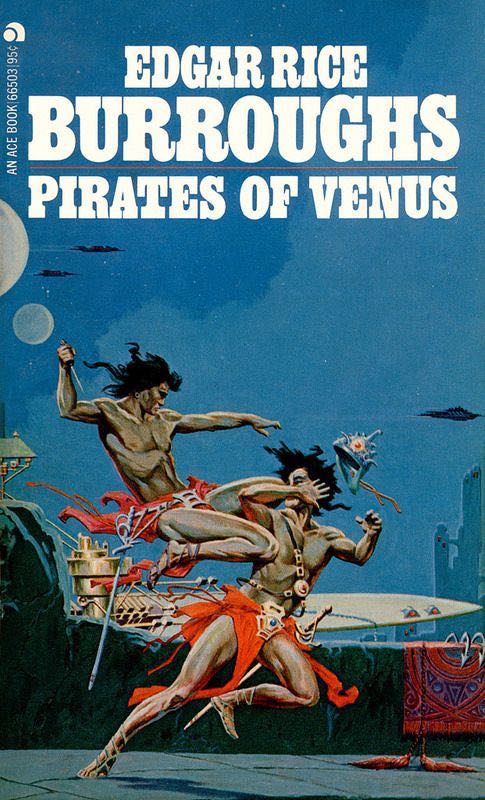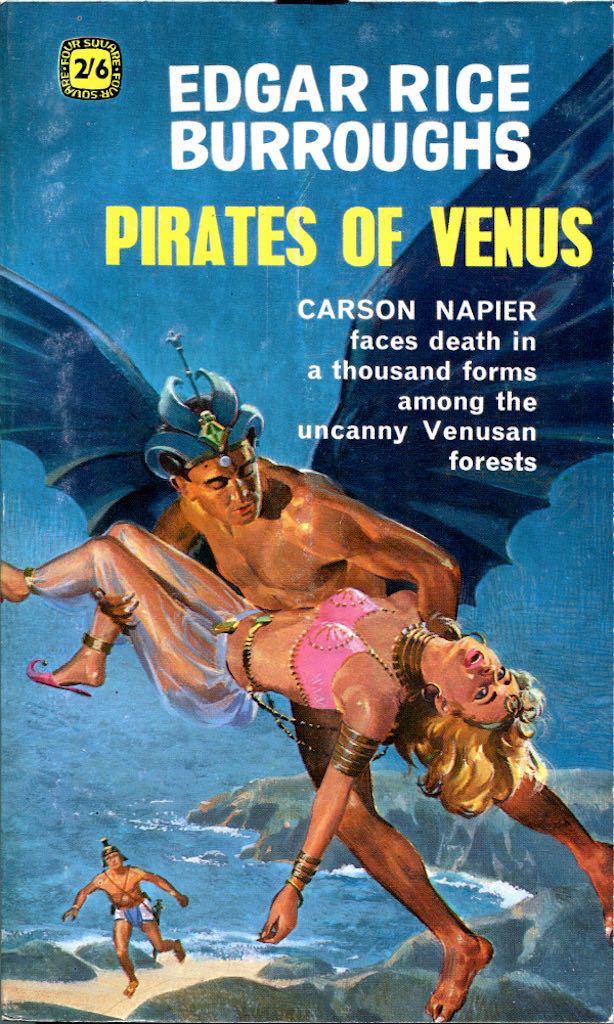Pirates of Venus
Series: Venus 1
Reviewed date: 2008 Mar 19
Rating: 2
179 pages
Edgar Rice Burroughs has a formula for his stories. A hero gets transported to a strange land and falls in love with a princess. The princess gets kidnapped, the hero risks life and limb to rescue her, and wins her heart. In Pirates of Venus, Burroughs does not stray far from his formula.
Our hero is Carson Napier, an explorer. Carson builds a rocket ship and blasts off for Mars, but a course miscalculation sends him to Venus instead. On Venus he meets the Vepajans, an egalitarian nation of civilized men. The Vepajans build their cities in giant trees, thousands of feet above the forest floor. As Carson learns their language he also learns about the history of Venus, which the Vepajans call Amtor. The Vepajans once ruled over all Amtor, but a group of malcontents called Thorists (actually communists by a different name) staged a violent revolution. The civilized Vepajans retreated to their treetop cities, and the Thorists now rule the rest of Amtor. The Vepajans live well; the Thorist regime is brutal and the people severely repressed.
Carson meets a girl--surprise!--but before he can win her affection, he is kidnapped. Carson is held prisoner on a Thorist ship. Is this a twist on the hoary old Burroughs plot? No. The girl--named Duare--doesn't rescue Carson. In fact, she is kidnapped as well, and held captive on a different Thorist ship. When Carson and his fellow prisoners escape and take control of their ship, they proceed to board and take the other ship too, thus rescuing the princess Duare.
Pirates of Venus is pretty plotless. There is plenty of action but no controlling story. It isn't even a rescue tale--Carson doesn't know his true love has been kidnapped until he accidentally rescues her. The only semblance of plot comes after the rescue sequence, when Carson decides to become a privateer. He will wreak havoc on the shipping trade of the Thorists in order to help bring down their regime. But that's hardly a plot, because as soon as Carson decides this, he is swept overboard, and the book ends. Oh well. So much for the whole political allegory slant.
Unlike other Burroughs books, Pirates of Venus talks a lot about the language of Amtor. Burroughs has developed rules of grammar, syntax, and orthography, which he reveals gradually. It's different, but not interesting enough to save the book. Pirates of Venus shows signs of fatigue. Burroughs was just going through the motions. Amtor is dull and uninspired. Carson Napier is not so much a hero as a victim of circumstance.
Pirates of Venus is out of copyright in Australia but not the United States. You can read it online at Project Gutenberg of Australia.

